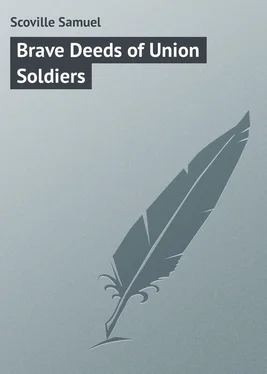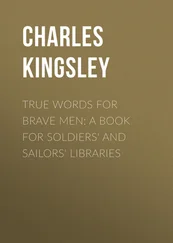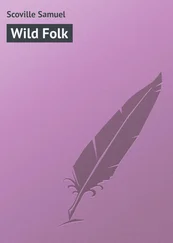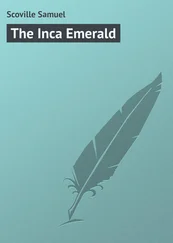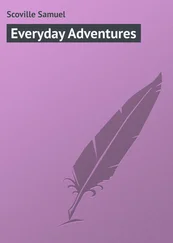Samuel Scoville - Brave Deeds of Union Soldiers
Здесь есть возможность читать онлайн «Samuel Scoville - Brave Deeds of Union Soldiers» — ознакомительный отрывок электронной книги совершенно бесплатно, а после прочтения отрывка купить полную версию. В некоторых случаях можно слушать аудио, скачать через торрент в формате fb2 и присутствует краткое содержание. Жанр: foreign_prose, foreign_humor, Анекдоты, на английском языке. Описание произведения, (предисловие) а так же отзывы посетителей доступны на портале библиотеки ЛибКат.
- Название:Brave Deeds of Union Soldiers
- Автор:
- Жанр:
- Год:неизвестен
- ISBN:нет данных
- Рейтинг книги:5 / 5. Голосов: 1
-
Избранное:Добавить в избранное
- Отзывы:
-
Ваша оценка:
- 100
- 1
- 2
- 3
- 4
- 5
Brave Deeds of Union Soldiers: краткое содержание, описание и аннотация
Предлагаем к чтению аннотацию, описание, краткое содержание или предисловие (зависит от того, что написал сам автор книги «Brave Deeds of Union Soldiers»). Если вы не нашли необходимую информацию о книге — напишите в комментариях, мы постараемся отыскать её.
Brave Deeds of Union Soldiers — читать онлайн ознакомительный отрывок
Ниже представлен текст книги, разбитый по страницам. Система сохранения места последней прочитанной страницы, позволяет с удобством читать онлайн бесплатно книгу «Brave Deeds of Union Soldiers», без необходимости каждый раз заново искать на чём Вы остановились. Поставьте закладку, и сможете в любой момент перейти на страницу, на которой закончили чтение.
Интервал:
Закладка:
All three of these great charges were brave, glorious failures. This is the story of a charge, an almost forgotten charge, just as brave, just as glorious, which succeeded, a charge in which one hundred and sixty men and boys broke and routed a force of over two thousand entrenched infantry and cavalry.
At the breaking out of the war, one of the most popular of the Union commanders was John C. Fremont, the Pathfinder. He had opened up the far West and had made known to the people the true greatness of the country beyond the Mississippi. At the birth of the Republican or Free-Soil Party, he was the first candidate. The country rang with a campaign song sung to the tune of the Marseillaise, the chorus of which was:
"March on, march on, ye braves,
And let your war cry be,
Free soil, free press, free votes, free men,
Fremont and victory."
He was one of the first generals appointed. Among those whom the fascination of his romantic and adventurous life had attracted to his side was a Hungarian refugee named Zagonyi. In his boyhood he had fought in the desperate but unsuccessful war which Hungary made to free herself from the Austrian yoke. He served in the Hungarian cavalry; and in a desperate charge upon the Austrians, in which half the force were killed, Zagonyi was wounded and captured and for two years was a prisoner. He was finally released on condition that he leave his country forever. As an experienced soldier, he was welcomed by General Fremont and was authorized to raise a company to be known as Fremont's Body-Guard. In a few days two full companies, composed mostly of very young men, had been enrolled. A little later another company composed entirely of Kentucky boys was included in the guards. They were all magnificently mounted on picked horses and very handsomely uniformed. Because of their outfit and name they soon excited the envy of the other parts of the army who used to call them the "kid-glove brigade." Although well-trained and enthusiastic, they had no active service until October, 1861, when Zagonyi, who had been appointed their major, was ordered to take one hundred and sixty of his men and explore the country around Springfield, Missouri, through which the main army was intending to advance. There were rumors that a Confederate force was approaching to take possession of the city of Springfield and the body-guard marched seventeen hours without stopping in order to occupy this town before the enemy should arrive. As they came within two miles of Springfield, however, they were met by a farmer who informed them that the Confederates had beaten them in the race to Springfield and were already in camp on a hill about half a mile west of the town. Their rear was protected by a grove of trees and there was a deep brook at the foot of the hill. The only way to approach them was through a blind lane which ran into fences and ploughed fields. This was covered by sharpshooters and infantry while four hundred Confederate horsemen were posted on the flank of the main body of infantry which guarded the top of the hill. Altogether the force numbered over two thousand men. It seemed an absolutely hopeless undertaking for a little body of tired boys to attack twenty times their own number. Zagonyi, however, had been used to fighting against odds in his battles with the Austrians. He hurriedly called his men together and announced to them that he did not intend to go back without a fight after riding so far.
"If any of you men," he said, "are too tired or too weak, or too afraid, go back now before it is too late. There is one thing about it," he added grimly, "if there are any of us left when we are through we won't hear much more about kid gloves."
Not a man stirred to go back. Zagonyi gathered them into open order and drawing his sabre gave the word to start up the fatal lane. At first there was no sight or sound of any enemy, but as the horses broke into a run, there was a volley from the woods and a number of men swayed in their saddles and sank to the ground. Down the steep, stony lane they rushed in a solid column in spite of volley after volley which poured into their ranks. Some leaped, others crashed through fences and across the ploughed fields and jumped the brook and finally gained the shelter of the foot of the hill. There was a constant whistle of bullets and scream of minie balls over their heads. They stopped for a minute to re-form, for nearly half the squad was down. Zagonyi detached thirty of his best horsemen and instructed them to charge up the hill at the Confederate cavalry which, four hundred strong, were posted along the edge of the wood, and to hold them engaged so that the rest of the force could make a front attack on the infantry. The rest of the troop watched the little band gallop up the hillside and they were fully half-way up before it dawned upon the Confederates that these thirty men were really intending to attack a force over ten times their number. As they swept up the last slope, the Confederate cavalry poured a volley from their revolvers instead of getting the jump on them by a down-hill charge.
Lieutenant Mathenyi, another Hungarian and an accomplished swordsman, led the attack and cut his way through the first line of the Confederate horsemen, closely followed by the score of men who had managed to get up the hill. With their sabres flashing over their heads, they disappeared in the gray cloud of Confederates which awaited them. At that moment Zagonyi gave the word for the main charge and his column opened out and rushed up the hill from all sides like a whirlwind. Even as they breasted the slope they saw the solid mass of Confederate cavalry open out and scatter in every direction while a blue wedge of men cut clear through and turned back to sabre the scattering Confederates. With a tremendous cheer, Zagonyi and the rest of the band rushed on to the massed infantry.
They had time for only one volley when the young horsemen were among them, cutting, thrusting, hacking and shooting with their revolvers. In a minute the main body followed the example of the cavalry and broke and scattered everywhere. Some of them, however, were real fighters; they retreated into the woods and kept up a murderous fire from behind trees. One young Union soldier dashed in after them to drive them out, but was caught under the shoulders by a grape-vine and swept off his horse and hung struggling in the air until rescued by his comrades. Down into the village swarmed the fugitives with the guards close at their heels. At a great barn just outside of the village a number of them rallied and drove back the Kentucky squad which had been pursuing them. This time Zagonyi himself dashed up, and shouting, "Come on, old Kentuck, I'm with you," rushed at the group which stood in the doorway. As he came on, a man sprang out from behind the door and leveled his rifle at Zagonyi's head. The latter spurred his horse until he reared, and swinging him around on his hind legs, cut his opponent clear through the neck and shoulders with such tremendous force that the blood spurted clear up to the top of the door.
Another hero of the fight was Sergeant Hunter, the drill-master of the squad. It had always been an open question with the men as to whether he or Major Zagonyi was the better swordsman. In this fight Hunter killed five men with his sabre, one after the other, showing off fatal tricks of fence against bayonet and sabre as coolly as if giving a lesson, while several men fell before his revolver. His last encounter was with a Southern lieutenant who had been flying by, but suddenly turned and fought desperately. The sergeant had lost three horses and was now mounted on his fourth, a riderless, unmanageable horse which he had caught, and was somewhat at a disadvantage. In spite of this he proceeded to give those of his squad who were near him a lecture on the fine points of the sabre.
Читать дальшеИнтервал:
Закладка:
Похожие книги на «Brave Deeds of Union Soldiers»
Представляем Вашему вниманию похожие книги на «Brave Deeds of Union Soldiers» списком для выбора. Мы отобрали схожую по названию и смыслу литературу в надежде предоставить читателям больше вариантов отыскать новые, интересные, ещё непрочитанные произведения.
Обсуждение, отзывы о книге «Brave Deeds of Union Soldiers» и просто собственные мнения читателей. Оставьте ваши комментарии, напишите, что Вы думаете о произведении, его смысле или главных героях. Укажите что конкретно понравилось, а что нет, и почему Вы так считаете.
